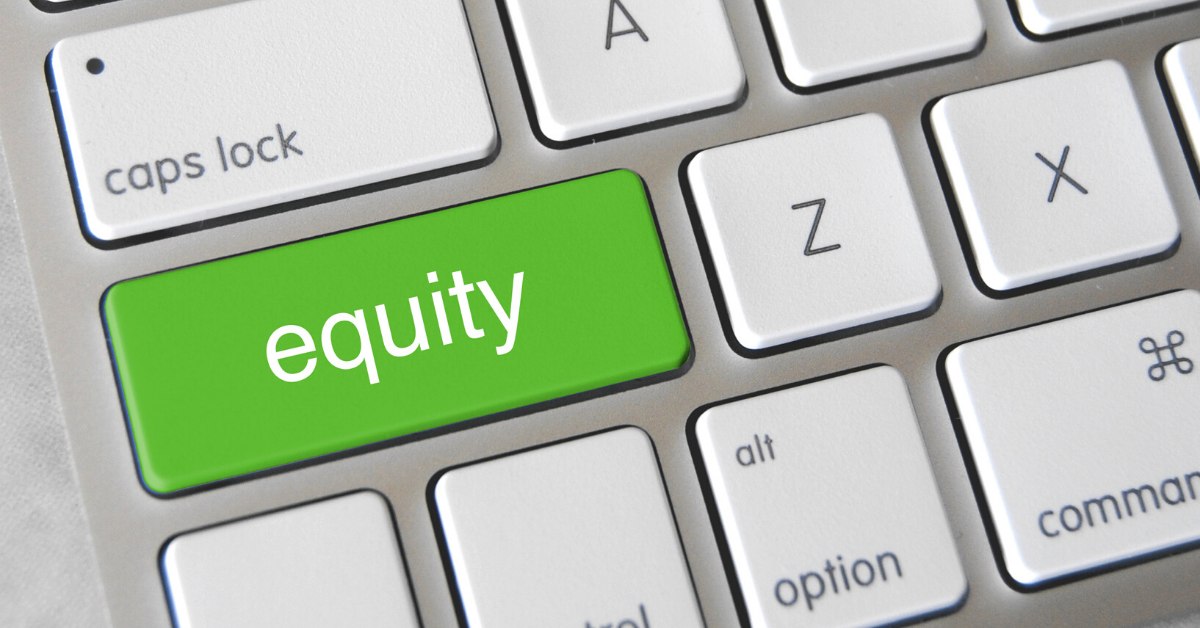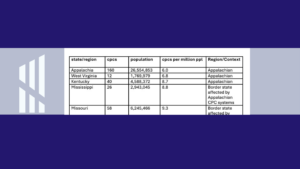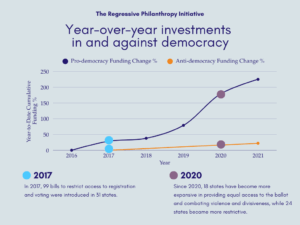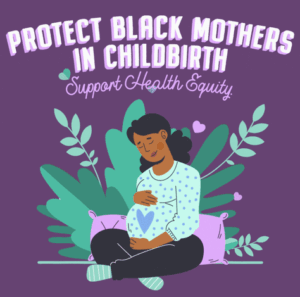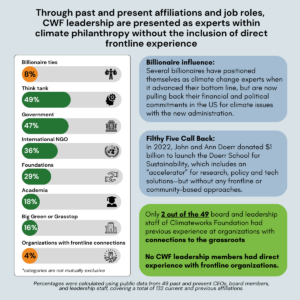Until the current COVID19 pandemic and the havoc it is wreaking are history, grantmakers will see a significant part of their work dominated in some form or fashion by the disease.
In fact, barely a month into the national spotlight, Candid maps show that close to $700 million have been allocated domestically for COVID19 grantmaking.
As philanthropy’s response continues to unfold, what lens can we use to assess the impact of the sector and individual grantmakers? How can you know that you are acting decisively to exercise equity and justice in this trying time?
You can start by taking stock of how well your institution is building, sharing and wielding power.
Measuring your actions alongside these 3 interrelated practices can help funders redefine risk and harness the financial, reputational, intellectual and social capital of your institution to change the systems that perpetuate inequity both in the current moment and alongside the enduring drive for justice.
Not surprisingly, funders we have spotlighted in the past for building, sharing or wielding power are exercising leadership during this crisis as well.
Building power in the time of Rona
Recently, a group of 40 social justice funders have pledged to ease the burden on their grant partners, demonstrating trust in those movement partners so they can continue fighting for justice.
Why is this significant? Because one of the best ways to build power and support systemic change is by funding civic engagement, advocacy and community organizing among communities experiencing inequities.
Towards that effort, the California Wellness Foundation announced $4 million in grants to support frontline health workers, economically disadvantaged people, immigrants, seniors and Asian Americans experiencing race-based harassment and assaults.
They also offered core operating support to shore up existing grant partners — all with a power-building and equity lens. President and CEO Judy Belk was clearly doing all this within a power building and equity frame:
“Where people live, their race and their immigration status has a direct influence on their health and wellness. This crisis will disproportionately affect folks who are already suffering as a result of deep inequities in our society. In addition, we will continue to support community organizing and advocacy so that folks can speak up and hold government accountable for enhancing the health and wellness of their communities.”
Located in a new viral epicenter, the Brooklyn Community Foundation not only set up a rapid response fund, it has already disbursed $400,000 in grants in record time to upwards of 40 social change organizations “that work towards racial equity, are led by members of affected communities, and center the voices of those directly impacted by structural racism in decision-making.”
One grant partner, VOCAL-NY, will use part of its grant to advocate for reducing prison and jail populations, where people cannot protect themselves from the spread of disease.
If you want another example of this kind of leadership in real time, all you have to do is take a look at The Libra Foundation. The funder, which received the 2019 NCRP Impact Award for Changing Course based on grantee feedback, just announced on Twitter that they were “doubling its grantmaking from $25M in 2019 to $50M in 2020. Our latest docket includes $22M to grassroots orgs led by and for low income communities of color. All general support, no proposals, no reports.”
Sharing power by nurturing transparent and trusting stakeholder relationships
NCRP’s Aaron Dorfman highlighted several early examples of funders shifting their grants practices to help their partners through the crisis.
Hundreds of funders have since pledged to ease grant requirements and to listen and act on feedback, echoing many of the best practices advocated by the Trust-based Philanthropy Project.
Even grantmakers that haven’t signed the pledge have made similar commitments, such as the equity-driven Dan and Margaret Maddox Fund in Nashville.
All these funders understand that the best way to share power is by nurturing transparent, trusting relationships and co-creating strategies with stakeholders.
The Weissberg Foundation in Washington, D.C. (a social justice grantmaker that has used our Power Moves resources to improve its equity approach and practices) is easing requirements and taking the additional step of inviting dialogue with and among its grant partners.
As they note on their website, “To the extent that it is helpful, we also want to provide you a forum for sharing with us and your peers what you are doing to respond to and weather this crisis, and what support you could use from us, each other, and the broader philanthropic community.”
Wielding power by exercising public leadership beyond grantmaking
What may be the biggest stretch for many funders is for them to exercise public leadership beyond their grantmaking.
Practically speaking, it means leveraging and tapping into relationship that you might have with elected officials and other influential policymakers to create equitable, catalytic change, all the more important in today’s rapidly evolving policy environment.
One foundation that has been centering power more intentionally is The Colorado Trust. They’re using their platform to draw attention to the impacts of the pandemic on vulnerable groups such as low-wage workers, homeless individuals and victims of domestic violence.
They are also directing staff time to compile and broadcast articles that provide advice, requests for assistance and in some cases policy recommendations from ground-level service providers and advocates.
The California Endowment is similarly using social media to draw attention to the plight of immigrants during this pandemic and to forcefully advocate for the closure of ICE detention centers.
Like many community foundations across the country, the Coastal Community Foundation (CCF) of South Carolina has launched a COVID-19 Relief & Recovery Fund.
However, they are also taking their efforts one step further by also advocating for federal changes to the tax code to motivate more giving, specifically calling on Congress to eliminate limits on charitable giving, at least through the crisis.
What will you do?
These are just some of the many grantmakers that we know that are taking important and valuable steps to ease their grantees’ burdens and even rally additional funding support.
As those wielding power above have shown, philanthropy’s leaders can and must amplify the voice of historically marginalized communities to advocate for equitable policies and distribution of resources.
We urge more funders and donors to use the additional tools that you have at your disposal to respond to the COVID19 pandemic, including your bully pulpit.
In and beyond this immediate moment of crisis, NCRP will continue to examine philanthropic actions through our Power Moves analysis and solutions.
Now more than ever, it is important to hold even our closest allies accountable for what they are doing to ensure that public, private and nonprofit resources and capacities are being directed towards those that have been left out of past recessions and recoveries.
We do so standing in solidarity with groups led by and serving Black, Latinx, Asian, indigenous, LGBTQ, immigrant, refugee, low-income and disability communities.
History will ask who stepped up to challenge the systemic inequities that are making the pandemic that much harsher for under-resourced communities.
It’s not too late for you and other grantmakers to deliver your answer.
How are you exercising public leadership in this critical time? Let us know on social media using #PowerMovesEquity #COVID19.
Follow @lisa_rang and @NCRP on Twitter.
Photo by GotCredit. Used under Creative Commons license.
